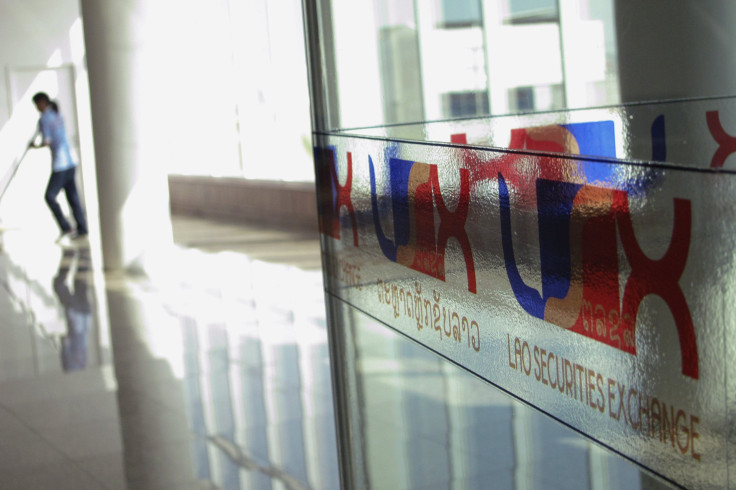Lao And Cambodian Stock Exchanges Stagnant After Two Years With A Combined Three Companies Listed
If you were given all the money in the world to invest in a stock from the stock exchanges of Laos and Cambodia, which stock would you choose? You might not actually get a lot of choices - both exchanges are stagnant two years after becoming operational, due to domestic companies being unwilling to reveal financial information, unfavorable rules and regulations, and limited understanding by potential investors. The Lao Securities Exchange (LSX) has two companies listed currently, which is double that of the Cambodia Securities Exchange (CSX).
On an average day, the combined trading turnover from the three companies listed in these two exchanges might reach a total of 5 million Thai baht ($160,760), a few minutes’ activity on the Stock Exchange of Thailand (SET), where average daily turnover this year has been 60 billion baht, Bangkok Post, a Thai newspaper, reported.

LSX was launched in January 2011 with help from both the SET and the Korea Exchange of South Korea (KRX). KRX holds a 49 percent stake in the LSX operating company – as well as 4 percent of the CSX.
LSX has a slight edge over CSX with its two listed companies – EDL Generation Plc and Banque pour le Commerce Exterieur Lao. Both began trading when the market opened 26 months ago.
CSX, on the other hand, had to wait until April 2012, nine months after it opened in July 2011, for Phnom Penh Water Supply, its only listed company, to begin trading.
The Cambodian government is pressing two other state-linked businesses – Telecom Cambodia and Sihanoukville Autonomous Port – to hold their IPOs. Several deadlines have come and gone without anything happen, however.
The same barriers are deterring both exchanges from becoming more successful. In addition to the small number of listed companies, the rules and regulations of both are unfavorable – in particular, they discourage foreign investment.
“We’re in the process of allowing foreign investors to hold more shares in the listed companies. The ceiling for foreign investors in listed companies currently is 5 percent. We will hike it to 10 percent by the end of this year,” said Park Ho-jeong, vice-chairman and chief operating officer of the LSX, according to Bangkok Post.
Park said foreign investors were looking to invest more in the Lao stock market. In addition to doubling the ceiling for foreign shareholding, the LSX also is trying to introduce new products to the market despite a number of difficulties.
Laos has set ambitious goals for its exchange in the face of setbacks. LSX plans to have 10 listed companies by 2016, which means it needs to attract eight more companies. It also hopes to reach the break-even point within five years.
Currently, daily trading volume is around 80,000 shares; if this figure hits 1 million, LSX is confident the market can break even, Park added.
LSX wants to encourage potential companies by educating them on the important role the capital market can play in their business planning and fundraising. It has dealt with 50 companies that have the potential to be listed, including Lao Airlines.
Changing the mindset of company owners is still the biggest hurdle to be overcome. These leaders need to understand the mechanism of the stock market, as well as the need for compliance and transparency in trading.
“Company owners don’t understand why they have to reveal their financial statements to the public. We have to change their mindset, which is not easy. We have been trying to hold lots of conferences or seminars to educate them about this,” Park said.
LSX is targeting domestic companies in agriculture, real estate and construction. Eventually, it plans to attract foreign companies or joint ventures.
CSX faces similar challenges. The capital market being new to Cambodia, most companies don’t understand the process of raising funds through the market.
Kao Thach, the deputy director-general of the Securities and Exchange Commission of Cambodia, said the country should incorporate a program about the stock market into education, so young people as well as investors can have more understanding about how the market works.
Cambodia has more potential companies than Laos, as it has more manufacturing activities and a more active real estate business.
However, Thach believes CSX should focus on manufacturing and service sectors, but not real estate, due to heavy speculation in the real estate market.
“The property companies in Cambodia currently are not good enough for our economy,” Thach said, according to the Bangkok Post. “They can’t create jobs for our people. What those companies do is buy and sell land for profit and speculate on the market prices. So, I don’t think that real estate can support our stock market.”
© Copyright IBTimes 2024. All rights reserved.




















